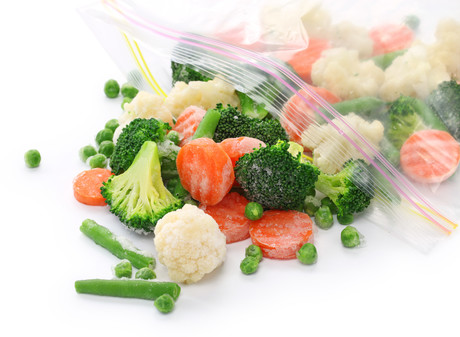Bias against frozen vegetables is rife

Frozen vegetable purchases in grocery stores are declining even though the products offer similar if not superior nutrition benefits to fresh vegetables and decrease the likelihood of waste.
According to Australian Bureau of Statistics only 7% of Australian adults met the recommended intake of vegetables (5–6 serves/day) in 2014/15 while in the US it is claimed that 87% of the population doesn’t eat enough vegetables. This is in spite of the known fact that vegetable and fruit consumption is important for maintaining a healthy diet and reducing risk factors for obesity and obesity-related illnesses.
One of the barriers to fresh vegetable purchases is concern about waste. It seems that some people avoid buying fresh vegetables because they are afraid they will go off before they are consumed. This is especially true in single-person households.
Frozen foods are highly suited to these situations. The nutrition benefits are equivalent to, or better than, fresh vegetables and consumers can take smaller portions of the vegetables without wasting the remainder.
At Stony Brook University in the US, Paul Connell and Stacey Finkelstein, both associate professors of marketing in the College of Business, collaborated with Florida State’s Maura Scott and Villanova’s Beth Vallen on a study, Negative Associations of Frozen Compared with Fresh Vegetables, which is soon to be published in Appetite. Their work documents reasons for the persistent negative attitudes consumers show towards frozen vegetables compared to fresh vegetables (a ‘fresh-frozen bias’) and explains that these negative attitudes towards frozen vegetables may be impacting consumption of healthy foods.
Stacey Finkelstein said, “In two studies we find that people have a strong negative bias against frozen vegetables when compared to fresh vegetables and that the perceived positive benefits of fresh vegetables decrease when people think about preparing fresh vegetables. We recommend a few strategies for attenuating this fresh-frozen bias including increased exposure to food preparation and nutrition education programs that prevent or correct mistaken beliefs about frozen foods.”
Call for comment on a new source of 2′-FL in infant formula products
FSANZ is calling for comments on an application to permit 2′-fucosyllactose produced from a...
Infant formula recalled due to potential toxin contamination
Due to the potential presence of the toxin cereulide, there has been a precautionary recall of...
Spicing up the festive season with Australian bushfood flavours
Spices unique to Australia could help to transform end-of-year special occasions by adding bold...










